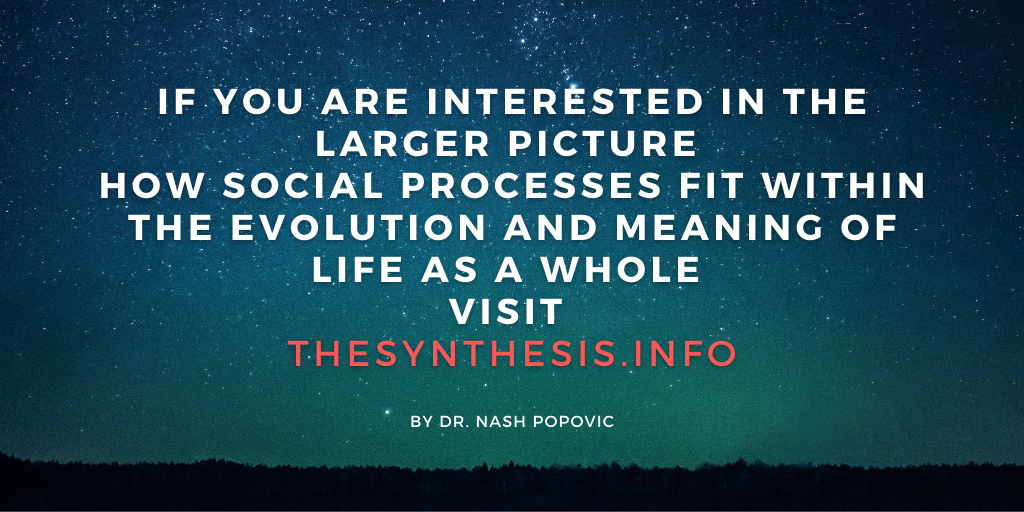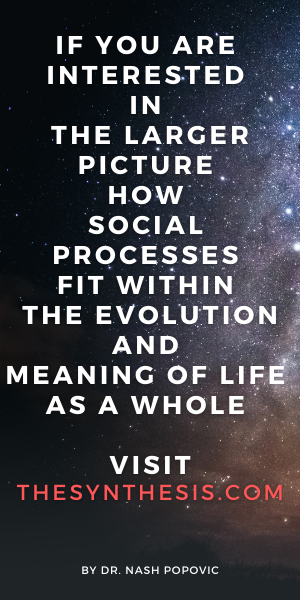Well-functioning global governance would benefit from a relatively small group of distinguished individuals who would be tasked to focus on the big picture. For a global society to survive and thrive, it is necessary to clarify what surviving and thriving entails on that scale and how to go about it. As with climate change, survival or extinction is not a question of a democratic choice (we can safely assume that most people would choose survival). It is about determining what is necessary to survive, and for that, a meritocratic component seems best suited. We already have the International Court of Justice (ICJ) to which judges are appointed (presumably on merit). There is no reason why this should be limited only to the ICJ and to legal experts. So, for this purpose we suggest the Council that would include deserving individuals from various fields: scientists, former politicians, academics and other scholars, environmentalists, those who have distinguished themselves promoting international development or human rights, or those who have extensive field experience.
The appointment of Council members would be based on a meritocratic principle. Candidates could be nominated by educational, political and science institutions, NGOs, and charities, or the general public, in a similar way to nominations for the Nobel Prize. An Appointments Commission, which should be an independent, non-partisan, non-statutory body, would vet nominations and make recommendations using some criteria such as these ones:
- a proven record of the candidate’s understanding of and/or contribution to global issues (which may include, but is not limited to, publications, posts held, professional awards, impact and tangible contributions)
- their ability to make an effective and significant contribution to the work of the Council (which includes their time availability)
- some understanding of the institutional and constitutional framework
- integrity and independence
- a commitment to the highest standards of public life
- reasonable distance from any corporate or political influence
The rationale for recommendation would be available for public scrutiny in order to make the process transparent and accountable. At least two of the three chambers would need to approve an appointment by a simple majority.
If you are also interested in the larger picture – how these social processes fit within the evolution and meaning of life as a whole, please visit thesynthesis.info
The Council would be charged with carrying out a number of tasks:
- Clarifying the core values and guiding principles, as well as delineating broad directions as suggested above (e.g. if one such principle is that the full environmental costs of particular activities need to be met by those who profit from those activities, what comprises the full cost would also need to be clarified).
- Developing further the hopelessly outdated UN Charter and other related documents that should contain these values and principles. Rather than being set in stone, the charter should be a living document that is permanently evolving. To see why this is important, let’s take one example: the UN 1951 Refugee Convention and its 1967 protocol (UNCHR, 2011) make up the main framework for international protection of people fleeing persecution, and provide the basis for the work of the United Nations High Commissioner for Refugees (UNHCR). This Convention is one of the most potent instruments of international law ever devised. However, it is also thoroughly out of date. It was created for different times and circumstances (dissidents fleeing from Soviet oppression in Eastern European countries). Most current refugees are not even recognised as such under its definition: many millions of people are displaced within their own country, but those who do not cross a border do not count; most refugees are not deliberately targeted but are simply in the way, as in Syria; and in the near future, most refugees are likely to be victims of natural disasters related to climate change – they too will not be recognised as refugees under the current Convention. There is no doubt that updating the Convention is necessary, but there is no UN body charged with carrying out such a task. There is another reason why the Charter would require ongoing work. To be broadly appealing, the Charter would need continual fine-tuning in response to the dynamic balance between a sense of a global community with a shared fate and values and respect for a healthy diversity and local identity. To minimise further the possibility, as well as the perception, of an imposition, this aspect of the Council’s work should be subject to feedback from and the approval of, the two other Houses.
- Advising the other two chambers and the Secretariat on the constitutionality and legality (see below) of proposed action or legislation, as well as actions carried out by other players (e.g. individual states or corporations). This would ensure that mutually agreed international laws apply equally to all parties.
- Delineating the jurisdiction of global institutions (e.g. what needs to be decided globally and what can be left to local decision making).
- Considering selected proposals on the constitution, values and global issues made by the general public and both Houses.
- Arbitrating if and when the House of Representatives and the House of States are in disagreement.
The International Court of Justice would be an adjunct to the Council (but not the International Criminal Court, which would be attached to the Secretariat, as suggested further on). As is the case now, its main roles would be to arbitrate between countries that have a legal dispute, and give advisory opinions to authorised UN organs and specialised agencies.


